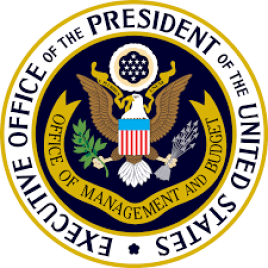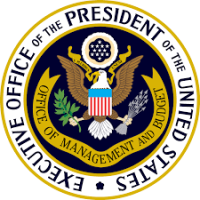COFFA Document Includes Details On Implementing 2024 UG Revisions

The Office of Management and Budget (OMB) is now encouraging federal cognizant agencies for indirect costs to be especially receptive to recipient requests to renegotiate their current indirect cost rate agreements (NICRAs) that are in effect beyond Oct. 1, 2025, according to a recent document issued by the Council on Federal Financial Assistance (COFFA) addressing the upcoming Oct. 1, revised uniform guidance implementation date.
The Aug. 15 document provides supplemental information to federal agencies about NICRAs and other aspects of grants administration to help both agencies, as well as recipients, better transition to requirements under the revised Title 2 of the Code of Federal Regulations, including the uniform guidance (2 C.F.R. Part 200). The document offers additional details on OMB’s April 22 final guidance issuing the 2024 revisions and OMB Memorandum M-24-11, “Reducing Burden in the Administration of Federal Financial Assistance.”
The document emphasizes that federal agencies must take appropriate steps to ensure that the 2024 revisions are effective for all federal awards entered on or after Oct. 1. Agencies also should ensure their award templates, terms and conditions, notice of funding opportunity (NOFO) templates, policies and procedures, and other program documents and policies related to federal financial assistance should be updated to reflect the 2024 revisions for awards issued following the effective date.
For existing awards, OMB is strongly encouraging federal agencies to apply the 2024 revisions to any amendments they make to awards on or after Oct. 1 that provide additional funds. It also is encouraging agencies to amend existing awards so that the awards comply with the 2024 revisions if they will extend into FY 2025 and beyond. If an agency amends an existing award, the 2024 revisions will generally apply to activities on or after the date of amendment.
“Agencies may never retroactively apply the 2024 revisions to past activities that preceded the effective date of the amendment if doing so would impose additional substantive requirements on recipients (such as requirements increasing burden),” the document explains. “However, if memorialized in the amendment or through formal written notice, an agency may provide written approval to recipients allowing them to apply specific provisions of the 2024 revisions that reduce burden on recipients to activities that preceded the amendment. This flexibility to provide written approval reducing burden for past activities does not apply to revisions of indirect cost rates or de minimis rates.”
For new awards after Oct. 1, federal agencies must apply the 2024 revisions “in full” (i.e., agencies cannot selectively apply some provisions but not others) to activities under the award, unless different provisions are required by statute or approved by OMB. If a federal agency and recipient seek to apply only one or more, but not all, provisions of the 2024 revisions to existing awards, the federal agency may consider using its case-by-case exception authority (§200.102(c)) as an alternative for formally amending the award.
For example, an agency may agree to an award amendment to allow an exception for a recipient to use the new de minimis indirect cost rate of up to 15% of modified total direct costs (MTDC) for an existing award, which would also include applying the new definition of MTDC under the 2024 revisions.
Concerning subawards, if a federal agency amends an existing award prior to Oct. 1 to apply the 2024 revisions, the 2024 revisions must also apply to subawards under that award, even to subawards already issued under that award. OMB notes that pass-through entities applying the 2024 revisions to subawards are not prohibited from applying more stringent requirements to the subrecipients. Otherwise, if a federal agency has not applied the 2024 revisions to an existing award, the pass-through entity must not apply the 2024 revisions to a subaward issued under that federal award, even if the subaward itself is executed on or after Oct. 1.
Award Notices
The document stresses that federal agencies should ensure that they provide clear direction to applicants within a NOFO that the 2024 revisions will be in effect for awards issued on or after Oct. 1 under the NOFO. It adds that federal agencies may request that applications submitted under a NOFO prior to Oct. 1, for awards starting after that date, be revised if necessary to reflect changes in the 2024 revisions. For example, the agency may request the applicant submit a revised budget to reflect the higher de minimis indirect cost rate and other changes.
OMB realizes that that many recipients may be implementing multiple federal awards, with some following the current uniform guidance and others eventually following the 2024 revisions, and some recipients may be making systemwide changes (e.g., internal controls, mandatory disclosure procedures, etc.) internally to comply with the 2024 revisions. “Federal agencies should work closely with recipients during this transition period to clearly communicate the requirements applicable to a given federal award,” the document states. “Federal agencies may also engage with recipients to address questions on whether systematic changes made by a recipient could impact compliance with the terms and conditions of existing federal awards.”
Indirect Costs
According to the document, NICRAs negotiated prior to Oct. 1 must continue to be honored by federal agencies and recipients. Cognizant agencies for indirect costs may, but are not required to, renegotiate NICRAs to reflect the new MTDC base, but OMB encourages these agencies to accommodate requests to renegotiate existing NICRAs that are in effect beyond Oct. 1, 2025. Recipients with provisional rates in effect prior to Oct. 1 must finalize those rates using the provisional rate’s approved MTDC base.
Future provisional rates must be negotiated with the new MTDC base on or after Oct. 1. Recipients with predetermined or fixed rates must use the new MTDC base beginning with the first proposal that is required on or after Oct. 1. Recipients preparing indirect cost rate proposals must apply the new MTDC base for proposals that are submitted to the cognizant agency for indirect costs on or after Oct. 1.
For new awards, recipients may elect to use the new 15% de minimis indirect cost rate for any award executed on or after Oct. 1. Recipients submitting applications to federal agencies before that date for programs with an anticipated award date that occurs on or after Oct. 1, may use the 15% de minimis rate in calculating the budget in that application even if the NOFO does not yet indicate that the 2024 revisions will apply.
As stated earlier, for existing awards, federal agencies may allow a recipient to apply the 15% de minimis rate to an existing award if the agency determines that there are sufficient funds to support the 15% de minimis rate. In such instances, the recipient must charge the 15% rate only to costs incurred after the effective date of the amendment to implement that rate. Recipients may not retroactively apply the 15% de minimis rate to costs incurred prior to the effective date of the amendment.
Single Audits
Although the single audit provisions in subpart F also become effective Oct. 1, the new $1 million single audit threshold and major program determination thresholds will apply to the nonfederal entity’s fiscal years beginning on or after Oct. 1, 2024.
The 2024 revisions update the report submission deadline at § 200.512(a). The cognizant agency for audit or oversight agency for audit (in the absence of a cognizant agency for audit) may authorize an extension when the nine-month timeframe would place an undue burden on the auditee, according to the COFFA document. Although OMB addressed this in M-24-11, the COFFA document states that when the cognizant agency for audit is evaluating whether an extension will be granted, and specifically whether the existing timeframe would place an “undue burden” on the auditee, the cognizant agency should consider whether the stated justification for the extension constitutes a substantial and unjust obstacle to timely submission of the report.
This should include consideration of whether the obstacle: (1) could have been avoided or overcome by the auditee (or its auditor) through planning and reasonable diligence; and (2) also affects other project delivery and performance activities under the award beyond just the audit process under subpart F. Extensions would not be granted merely for the purpose of allowing an auditee to retain its low-risk designation (§200.520(a)). After determining that an extension is needed, the cognizant agency should consider the length of the extension, and in particular, consider the date the request was made relative to the report due date, OMB explains, adding that the extension should be no longer than necessary based on the undue burden faced by the auditee.
For More Information
The COFFA document is available at https://tinyurl.com/2j6ktb8t.



